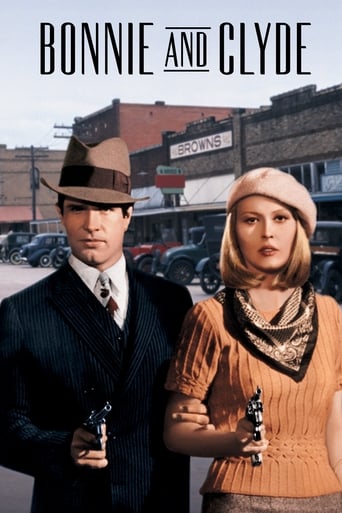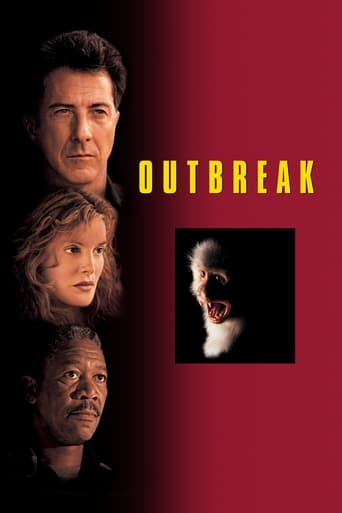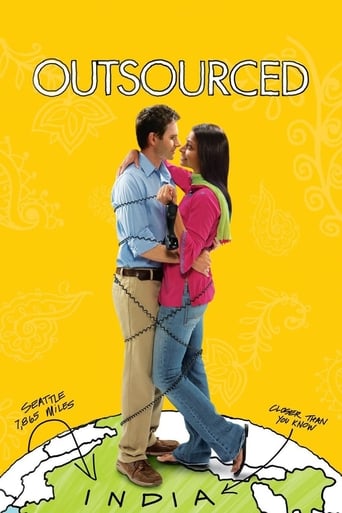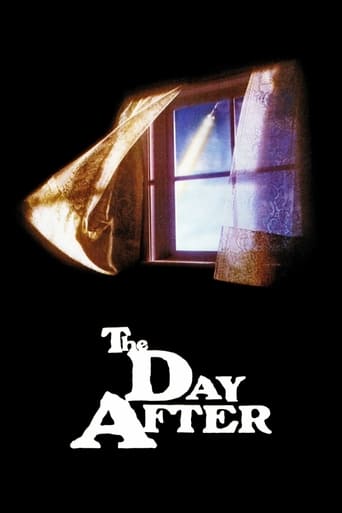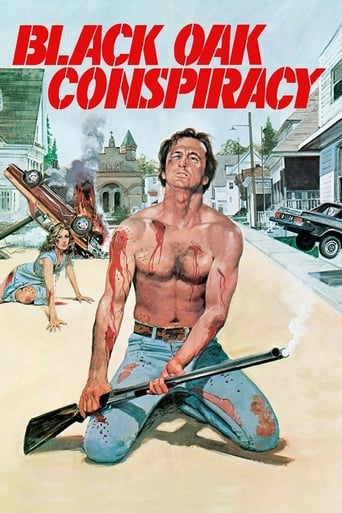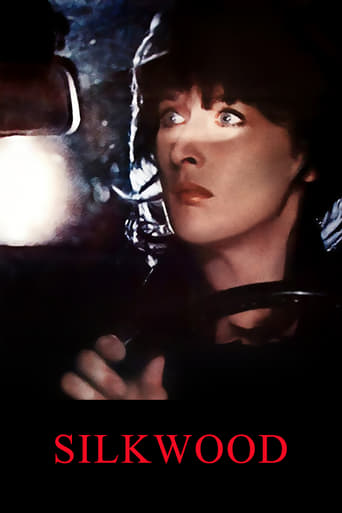
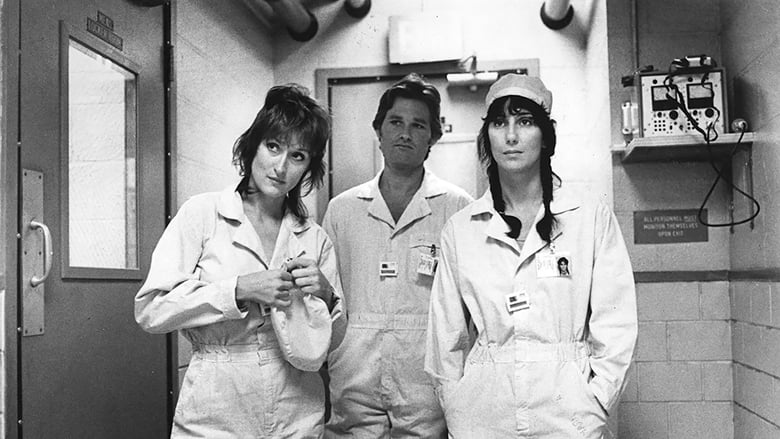
Silkwood (1983)
The story of Karen Silkwood, a metallurgy worker at a plutonium processing plant who was purposefully contaminated, psychologically tortured and possibly murdered to prevent her from exposing blatant worker safety violations at the plant.
Watch Trailer
Cast


Similar titles
Reviews
Apparently based on "real-life" events that took place back in 1974 - I'd say that Silkwood's joyless, little story about these disastrous events could've easily been told in about 90 minutes, instead of being totally dragged out for 130 minutes.This potentially promising tale about a nuclear whistle-blower got itself so bogged down with frivolous soap opera that, before long, the intended dead-seriousness of Karen Silkwood's escalating dilemma became annoyingly trivialized to the max.I mean - In no time flat - Karen's dire predicament was given such a back-seat to all of her chronic chain-smoking and petty personal dramas that I got to the point where I lost complete interest in this film's story and I ceased to care, one way or the other, about what inevitably happened to this woman.Anyway - With that all said - I can't believe that both Streep and, especially Cher (as Dolly the lesbian loafer) were actually nominated for Oscars for their lack-lustre performances here in Silkwood.
What does your own hero look like ?How do you judge people ?When should you let go ? And when should you stick around ?With "amazing grace", the beautiful Meryl Streep and Karen Silkwood have both tried to answer our questions. This wonderful movie wasn't about Silkwood's bravery in demanding people's absolutely basic rights only.Most of people judge others by their own definition of "honour". You tell a friend about how this woman sleeps with everyone and the word goes on about how this promiscuous woman is a devil. This portrayal of Karen Silkwood will definitely conquer your image and your ways of judgment. As you can see her life ends, you'll know what really matters in life and what real honour looks like. You'll know that each one of us has their own demons, and some more than others, maybe for the bigger part, because they've witnessed what the rest didn't in their lives. You can never judge this woman saying she left her children when she's fighting for the framed pictures they're taking from her as they've found her house's contaminated, you can never judge her emotional and sexual behaviour when you see the look - to Drew- in her eyes before she dies and you can never judge the quality of her life given her psychological disturbance. This beautiful woman fought for what really matters in this life: end of fear .. end of blackmail for money and food. She's a hero by all means, defying all sorts of authorities with absolutely no support most of the time. You can see the struggles of being with someone who wouldn't save the world like you're trying to, but turns out to love you as you are with all your demons. The real lesson for most people in this movie was about bravery and courage, but for me, it was mostly about acceptance, judgment and what really matters in this life.I can't thank Meryl Streep, Cher, Kurt Russel and Director Mike Nichols enough for this masterpiece, especially the ever-amazing and graceful, Mrs Streep .. You've taught me more than I've ever learnt from anybody in my own life.
As we don't really know what happened to Karen Silkwood for an exact certainty this film gives us a pretty accurate account of those last months of her life when a very ordinary and pedestrian life became a symbol of union activism and the power of plutocracy to have their way.When Harvey Milk went out and became a gay activist he reflected that in the 40 years he'd been living on planet earth he hadn't really left much of a mark up to that time. Karen Silkwood didn't even have that much time left to her. The last couple of years of her life were devoted to union activism and it was that activism that indirectly or directly led to her death depending on your point of view.As an a union leader she even faced the criticisms of her own rank and file for not working as they felt for more traditional issues like a pay raise, less hours etc. Her concentration was the plant safety at Kerr- McGee where she and others worked making plutonium pellets for nuclear fuel rods. As such she and her co-workers were exposed to radiation, exposed a lot more she feared than her employers let on. That's fairly well proved in the film and in life.As to her death the speculation is that it was not just an automobile accident, but something that was arranged by Kerr-McGee as she was on her way to meet a New York Times reporter with documentation of Kerr- McGee's failings on the issue of safety. That's the part that has left her story a mystery until this day, a mystery that the film Silkwood takes no real position.But despite that the film got five Oscar nominations for Meryl Streep one of her collection of Best Actress nominations for the title role. Mike Nichols got one for Best Director and there were nominations in the writing and editing categories.Cher spread her thespian wings in Silkwood playing Streep's best friend and lesbian roommate and fellow worker. She got some deserved rave reviews and this led to a second career as actress. In her whole career Cher has never really mixed her singing and her acting. Thirty years ago she probably would have been Hollywood musicals of mixed quality so she's eschewed musical films. I think that's conscious decision she's made and it's worked out well for her.Sadly being ignored by the Academy was Kurt Russell playing Streep's live in boyfriend. From child actor to Disney bubble gum star to action adventure films, Russell finally got a real acting role he could create a character with and did so. Mostly his career has been action/adventure stuff, but here and in other films like Unlawful Entry and the Mean Season he's shown some acting chops without shooting people or breaking heads.The film Silkwood as a totality is not as good as the outstanding performances these three players give in it. But it still remains a testament to the life and example of Karen Silkwood.
This is a review of "Silkwood" and "Norma Rae", two of the more famous "women's pictures" of the 1980s. The better of the two, "Norma Rae" stars Sally Field as Norma Rae, a textile worker in small town North Carolina. Director Martin Ritt delves into Norma's social and home life, highlights the exploitation of both Norma and her fellow workers, and then introduces Norma to a Jewish unionist played by Ron Leibman. Ron teaches Norma the importance of solidarity, worker rights and battling for betterment. Sally, meanwhile, reveals herself to be a headstrong, blue-collar warrior; the brawn behind Leibman's brains.While "Norma Rae" does trivialise (it champions a "fairer capitalism", rather than examine the contradictions of capitalism itself), it does contain a number of good passages, most of which either compare Ron and Norma's differing social backgrounds or show the textile bosses strategically promoting dissenters and so pitting workers against workers. John Alonzo's cinematography is pitch perfect, gritty, intimate and pseudo-documentarian.Some have complained that "Norma Rae" is uncritical of unions, that the film neglects to mention that Norma's textile plant promptly shut down, and then go so far as to suggest that "unions are bad" because they "end jobs" and "chase jobs offshore". We see similar arguments today, banks, and the financial sector as a whole, which proclaim themselves as being "indespensible", threatening to pack up and leave countries if taxes are raised or stricter measures are put in place. Such things are typically used as "proof" for the benefits of less regulation. In reality, it's tantamount to blackmail.Directed by Mike Nichols, "Silkwood", another blue-collar whistle-blower picture, stars Meryl Streep as Karen Silkwood, a lowly worker at an Oklahoma nuclear facility. Along with her best friends (played by Kurt Russell and Cher), Karen begins to gather proof of her company's copious wrongdoings, which include poor safety measures, employee exploitation and radiation spills. Like "Norma Rae", the company bosses attempt to fight back, but can't seem to counter Karen's grit and determination. Both film's are overly sentimental, deal in very broad stereotypes (bad bosses, good exploited workers, saintly activists etc), but mask their deficiencies well with their low-key tones, naturalistic acting and strong, small town atmosphere. Their ancestors are King Vidor's "Our Daily Bread" and Michael Wilson's "Salt of the Earth". Their children are everything from "Matewan" to "North Country" to "Erin Brokovich" to "The Insider" to Ken Loach's underrated "Bread and Roses". The tale's familiar, and is habitually resuscitated every now and then.Unlike most films in this genre, "Silkwood's" hero is actively stalked, hounded and murdered by the shadowy corporations she locks horns with. In real life, the nuclear facility at which Karen worked (Kerr-McGee) was rumoured to have strong ties to the US Government, the CIA and the NIA. As Karen was about to whistle-blow on the illegal sale of nuclear grade plutonium, some believe she was assassinated. In the 1970s, women like her spearheaded the anti-nuclear movement, which has been successful in stopping the construction of nuclear plants, which even today are constantly being offered as "clean", "carbon free", "reliable energy sources".8/10 - Overrated, simplistic, but well acted. Worth one viewing. See "Bread and Roses".





